Seven of the best books you may not have heard about in 2021
After a year of restless distraction reset with these six excellent — but mostly unheralded — titles published this year.
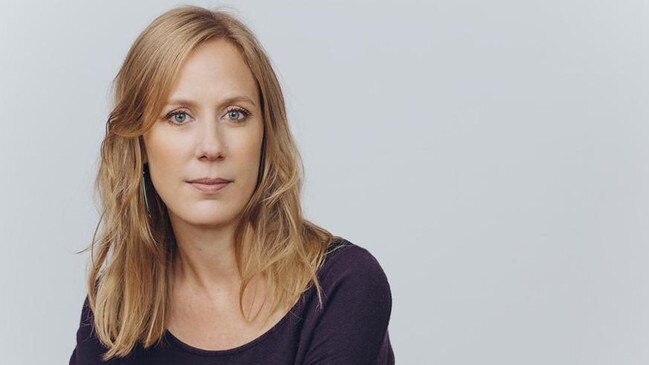
This was a curious year for reading. The bunker mentality that got us through the first wave of the Covid-19 pandemic gave way to restlessness and distraction, even as the obligations of lockdown grew more onerous for many.
Again and again, I found my to-read pile being used to sit a laptop screen on top of, the better to stream some algorithmically determined guff.
So perhaps the best thing we can do as readers during the holiday season, along with the blessed possibility of some empty time, is to use books as a necessary mental reset: using the printed page to escape the screen’s tyrannical perpendicular, and by doing so learn once again the joys of proper, deep, engaged, slow and sustained reading.
In that spirit, nothing rewires the neurons like poetry: it’s like electric shock therapy for the soul.
Poet and scholar Sarah Holland-Batt spent last year producing a vivid collection of columns for this newspaper about poetry: how to write it, how to read it and how to describe the feeling it inspires.
Now, Holland-Batt has won every prize under the sun for her work; she hardly has flown under the radar this past year. But poetry is always unsung – mostly because we lack the vocabulary to respond to it. Her essays seek to repair this. They are like being shown under the bonnet of a classic car by a knowledgeable mechanic: everything clearly labelled and patiently explained, down to the valves and pistons that make the whole thing purr.
Plainly but intelligently written, filled with professional insights and well-chosen extracts from poems classic and contemporary, Australian and offshore, Holland-Batt’s work has now been collected in a single volume called Fishing for Lightning, published by the University of Queensland Press.
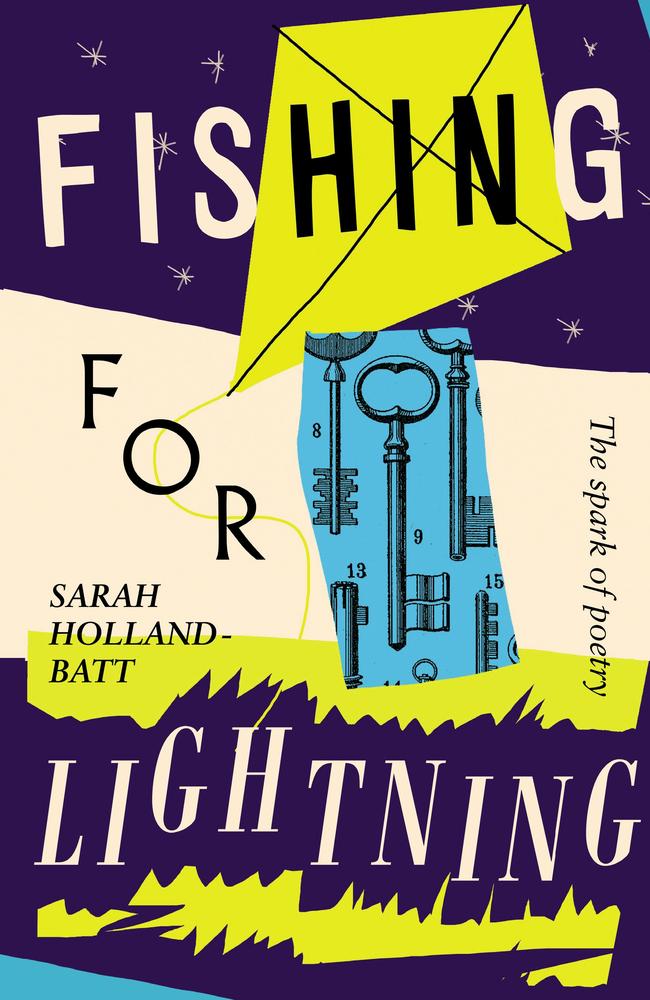
I have been a fierce partisan for the work of Sarah Sentilles since her extraordinary Draw Your Weapons (Text) from 2017. That mediation on war by a former Yale theologian was, at its heart, a guide to living with the suffering of the world without giving way to despair.
Yet her most recent title, Stranger Care (Text), released midway through this year and hewing far more closely to Sentilles’s personal experience, is a harrowing account of trying and often failing to live with painful domestic circumstance.
Sentilles’s report of the extraordinary efforts she and her husband undertook to adopt a baby – a girl named Coco, who was placed into their care and became the centre of their lives until blind bureaucratic intervention and a broken American legal system resulted in Coco’s removal and then placement with strangers – is most painful because the author’s impeccable decency is often at odds with a wild and selfish maternal love.
Indeed, it would be an impossible book to read if it weren’t constructed with such literary skill, informed by such hard-won wisdom and insight, leavened by black humour and buoyed up by reserves of hope.
It often feels as though literary magazines, of which Australia has an unfair number of excellent examples, are regarded as only for creative nerds or would-be writers. But they are so much more than that – seedbeds of culture, venues for experiment and principled critique, or spaces in which a single issue or idea might be explored from multiple angles.
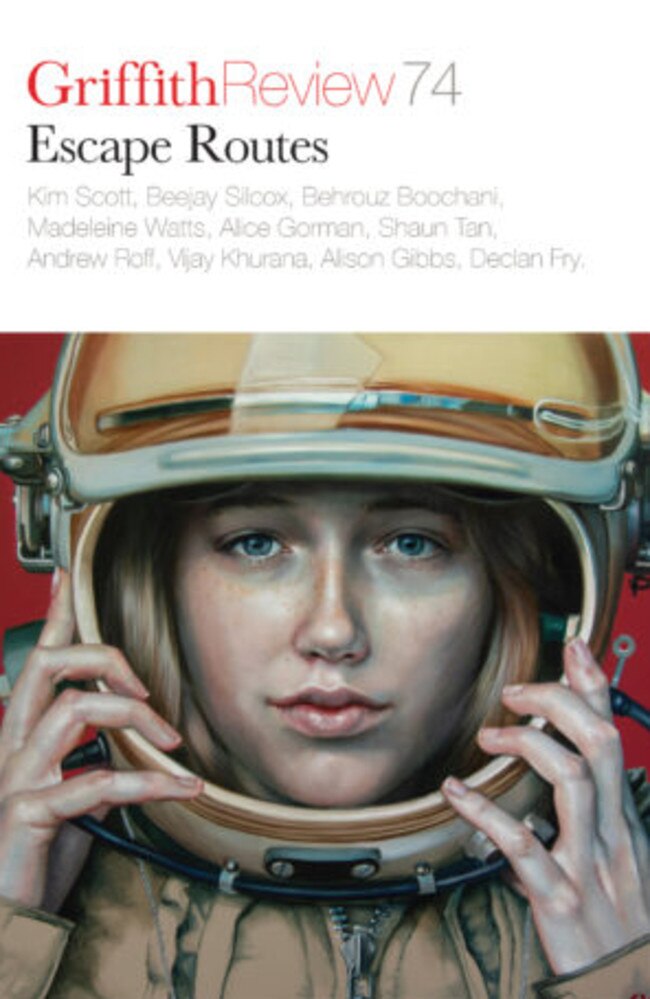
Griffith Review (UQP), under the editorship of author and journalist Ashley Hay, does all these things. I would even argue that this year it has been doing all these things at a cut above. During the past year the quarterly has dedicated numbers to our human need for escape, the stubborn dream of Utopia, our uneasy collective psychological state, and finding a new balance in every aspect of life in the pandemic’s wake. Hay’s genius is to pick a subject that feels utterly apt for the moment, then to convince the smartest thinkers and finest writers around to contribute something on the topic.
The past 12 months alone have brought pieces by author Barbara Kingsolver, historian Clare Wright, novelist Alex Miller, critic Beejay Silcox, poet Ellen van Neerven and activist Behrouz Boochani, among dozens of others equally talented. For me, at least, Griffith Review is the sound of Australian democracy and culture thinking out loud.
Elsewhere in The Australian’s pages I have recorded grudging admiration for the scale and ambition of Jonathan Franzen’s latest novel, Crossroads, which still strikes as one of the best American novels of the past year. But an equally talented novelist has published with less splash here than she has received in her native US in recent months. I write of Lauren Groff’s luminous and compelling Matrix (Heinemann).
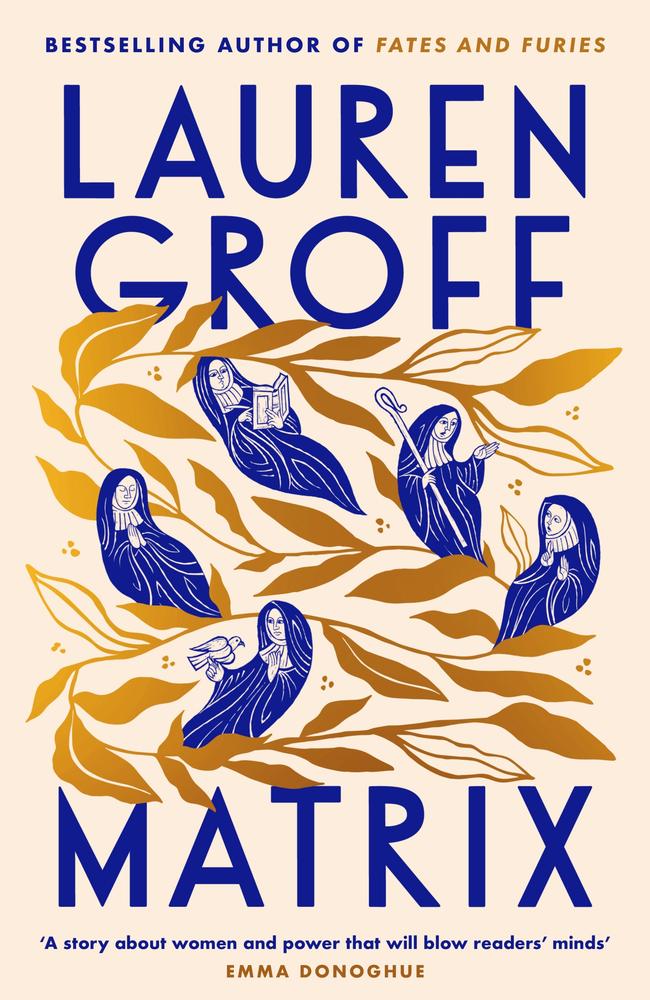
Matrix takes a historical figure about whom we know almost nothing – Marie de France, a 12th-century poet and mystic who wrote in a medieval dialect of French – and envelopes her in a narrative at once plausible and passingly weird. In Groff’s telling, Marie is illegitimate half-sister to Eleanor of Aquitaine. She’s tall, ungainly, a fighter and a dreamer who, aged 17, is packed off to a nunnery in England.
Initially Marie feels the claustrophobia of her closed order and kicks against the rules. But eventually she embraces her situation and determines to shape it to her own ends. Marie becomes prioress, then abbess. She returns the lands around the nunnery to good order, and builds great wealth and political power across time, all of it performed out of a desire that women be free from the patriarchal world outside the nunnery’s walls.
Groff’s novel is, in a way, an extended gloss on Marie’s own surviving writing. She makes the old words sing again in ways that seem utterly contemporary. It is no utopia that the author describes, nor is Marie a perfect being. Yet she emerges from Groff’s novel as one of the most memorable characters in recent fiction.
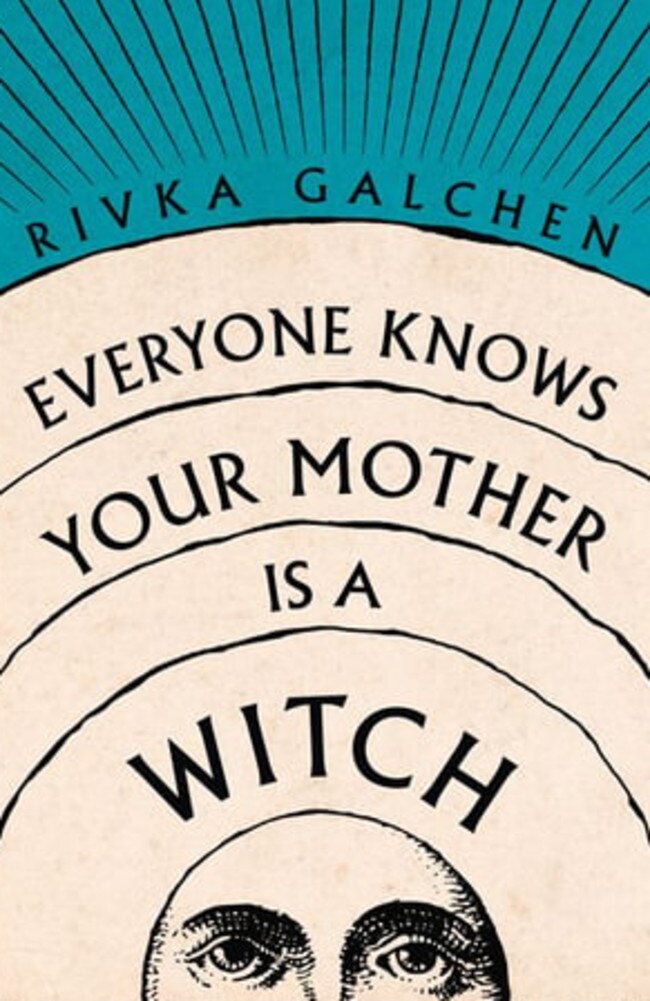
An equally talented novelist has published with less splash here than she has received in her native US in recent months. I write of Rivka Galchen’s fiercely intelligent Everyone Knows your Mother is a Witch (Fourth Estate).
Everyone… takes the real historical figure Katherina Kepler – widowed mother of the famous early astronomer Johannes Kepler – and walls her up inside the town of Leonberg in the Duchy of Württemberg in the wake of an icy winter during the early Seventeenth century.
The ferocity of the climate has led to anxiety among the locals. Explanations must be found for crop failures that threaten starvation and plague that has begun to spread; scapegoats must be found. So it is that Katherina Kepler finds herself accused of witchcraft.
Galchen, who trained as a doctor before she became a writer, is brilliantly alert to the way science and human culture interact. Her historical novel, built upon Katharina’s first-person testimony, the depositions of angry townsfolk and the lordly perspective of Hans Kepler, a lauded mathematician in the service of the Empire, gives us an extraordinary picture of early modern Europe in the round.
The novelist’s achievement is to show how the usual frames of social reference break down on the intimate, local level of village life. Katharina is no witch, but she is a dreadnought of a human, bossy and omnicompetent. She has assumed a role which older women are not meant to hold. In relitigating her trial, Galchen has wrestled one small tragedy from the blind rush of history and turned it into a story of real significance
David Graeber is perhaps the most important thinker you haven’t heard of. A brilliant anthropologist and self-confessed anarchist who taught at Yale University and the London School of Economics, Graeber wrote several of the more important books of recent decades – including Debt: The First 5000 Years – provided the intellectual inspiration for the Occupy movement, then died suddenly of pancreatitis while on holiday in Venice last year. He was 59.
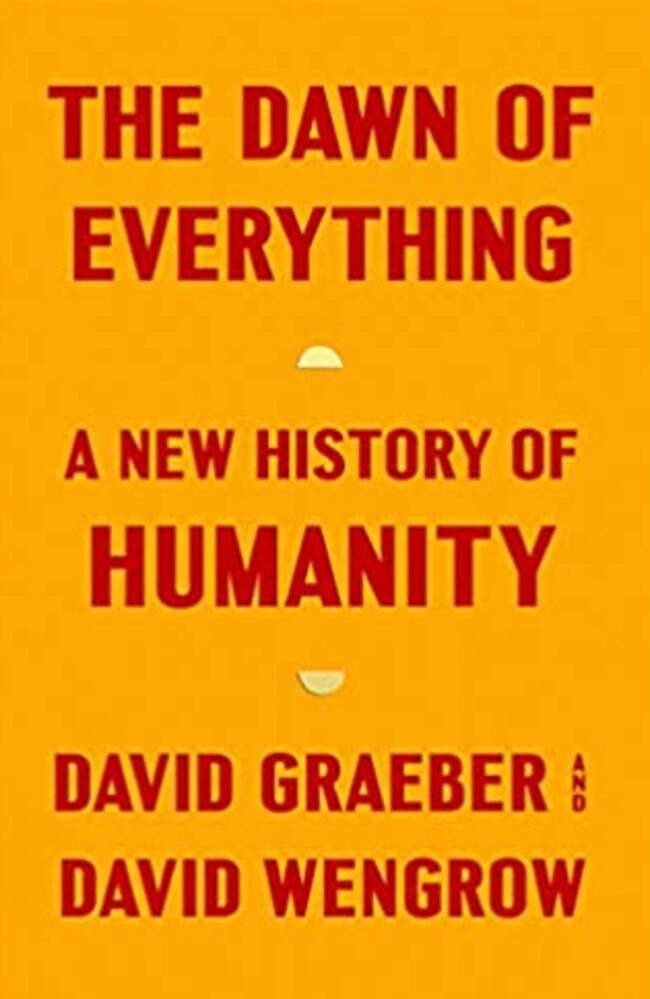
In October this year the first volume of a hugely ambitious project Graeber had undertaken with archaeologist David Wengrow was published posthumously, The Dawn of Everything: A New History of Humanity (Farrar, Straus and Giroux). Early reviews have mourned the loss of a mind such as Graeber’s, and while several have complained about the sheer amount of scholarship it contains, no one has gainsaid the radical implications of the pair’s research.
Graeber and Wengrow have assembled existing data and drawn on cutting-edge archaeological discoveries to show that social stratification, indebtedness, slavery and other ills of inequality were not, in fact, natural outcomes of a shift from nomadic hunter-gathering to settled agricultural and urban life.
By rewriting our distant human past, the authors hope to rewrite our human future. What if the political and economic orders under which we live and work, whose centralised power and authority is premised on the notion that they are merely the undesirable but necessary outcome of modern life, are not our only option as a society? As the authors persuasively argue, it hasn’t always been the case.
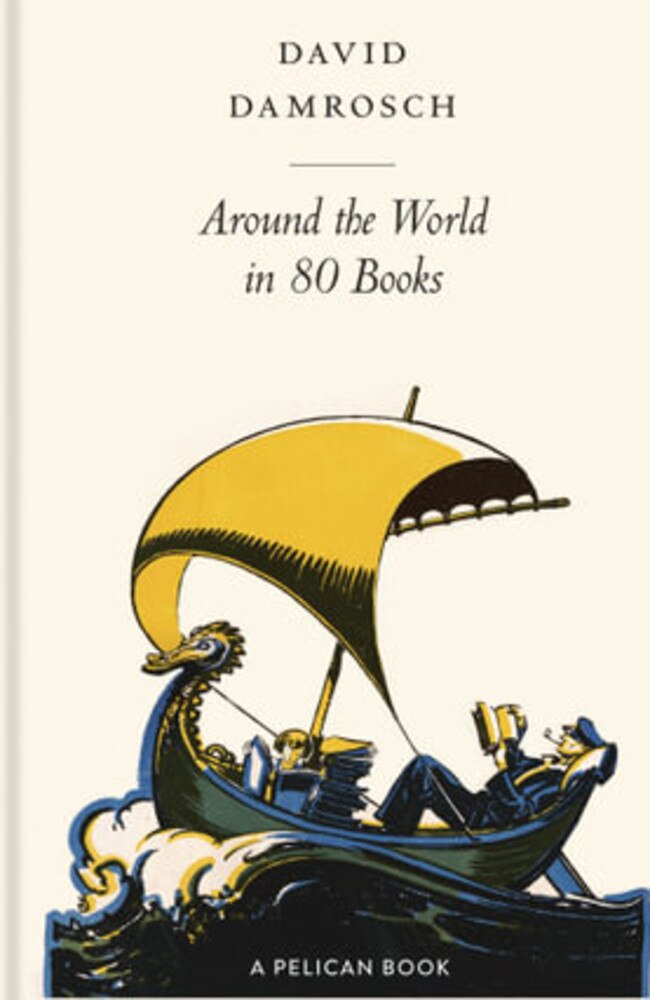
Finally, if you are desperate to head overseas once borders reopen but are put off by cost, logistical hurdles and scary new letters of the Greek alphabet, my last unsung book is nothing less than a dirt-cheap round-the-world ticket for the armchair traveller.
Around the World in 80 Books (Penguin Random House) is an anthology assembled by the brilliant scholar of comparative literature David Damrosch.
He has chosen works from authors from across the globe – creators of literary classics and children’s literature, fantasy and crime fiction – whose sense of place is as richly realised as their imaginative engagement with the issues that affect their particular patch. Phineas Fogg himself could hardly have covered more ground, more elegantly, than Damrosch does here.
Geordie Williamson is chief literary critic of The Australian.


To join the conversation, please log in. Don't have an account? Register
Join the conversation, you are commenting as Logout